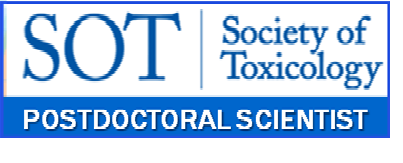
Gurjot Kaur, PhD, in Pharmaceutical Sciences from the University of Innsbruck, Austria, is currently employed as a Research Associate at the Department of Human and Environmental Toxicology at the University of Konstanz, Germany. She is originally from the bustling capital of New Delhi in North India. Being the first PhD graduate in her whole extended family, her pastime also is convincing her non-scientist relatives about the importance of science in human life. Her PhD dissertation was comprised of the first-ever report of a lipid binding site on voltage-gated calcium channels. She is currently pursuing research in the field of Human Toxicology. Dr. Gurjot is extensively trained in cellular and molecular biology and has been exposed to different aspects of Cellular Physiology: insulin signaling, membrane lipid interactions, ion channels, membrane receptors, and toxins. In addition, she serves as the current Secretary of the SOT Postdoctoral Assembly (PDA) Executive Board and is an active member of the Graduate Women in Science Media Committee.
Moving to another country for my PhD and later postdoc was a very conscious decision, and therefore my transition to my current postdoc has been smooth. I am now quite settled into my lab life and personal life in Konstanz, Germany. When I first went to Innsbruck, Austria, for my PhD interview, I was completely mesmerized by the city as well as the lab I was joining. I made many international and even local friends while not knowing the local language (German) as I lived in a hostel and people were willing to talk in English. I also loved my PhD dissertation topic and the new-found freedom to try different ideas during my project. Both the scientific environment in the lab, rich with many international candidates, and the constant exposure to international conferences enhanced my love for science. Hence, although I went to India for a year after my PhD, I returned to pursue postdoctoral training in Europe.
In mid-2014, I joined the University of Konstanz for my first postdoc, and due to my ever-growing love for the city of Konstanz, I have stayed until now. It did take much longer to feel at home as well as to start getting results in my postdoc project. I still remember attending the weekly Stammtisch, student get-togethers organized by the Welcome Center, to meet more people like me and to practice the little German I knew. I am still in contact with the friends I made during those weekly get-togethers. So, I would recommend everyone to do this type of socializing when you move to a new city. It is very important to form a ‘friend support system’ as early as possible to avoid homesickness.
Scientifically, the move to Konstanz was directed to pursue a different research topic and acquire familiarity with additional research areas so that I can work in an interdisciplinary field. During my first postdoctoral fellowship in neurobiology, I came in contact with Prof. Dietrich, my current supervisor, who works in Human and Environmental Toxicology and whose lab research area highly excites and motivates me. Seeing this potential, I contacted him after a year in Konstanz and quickly transitioned to Toxicology as a field. Due to the openness and opportunities provided by my supervisor, I have been able to make valuable connections and collaborations worldwide (especially through SOT conferences).
As an international postdoc in Germany, I would say that there are some advantages as well as disadvantages. Language is sometimes still an issue. All the official documents related to housing amenities and work are in German and for someone who does not know German (not to forget that German is quite a difficult language to learn), understanding the agreements can be a major task. However, many universities provide help (such as the Welcome Center at the University of Konstanz) for international students and postdocs to decipher language and accelerate their process. In my current lab, I am the only international person and, although researchers usually have decent English, this is not true for students, especially bachelors and admin staff. It is assumed that you will learn German, which can be very difficult if you are working on your research project most of the time. Our meetings and other important discussions are held in English, but do not expect the casual coffee breaks to always be in English. Same goes for your personal life.
Scientifically, the most challenging part for me was to learn grant writing, especially because the research culture varies considerably from my earlier experience. In Germany, while there are many grant opportunities, the competition is equally great so writing and submitting grants demands a lot of work time. Unlike my PhD experience, I also supervise students (bachelor, graduate, and PhD) during my stay as a postdoc.
Fortunately, the advantages of such a postdoc outweigh the disadvantages. While language can be an issue, it is also a chance to learn a new language and integrate into a new culture. It is a constant reminder to remain flexible and learn from your experiences. An experience with a culture so different from my own also enhanced my soft skills. In addition, of course, the experience in managing students helped me develop important people skills for managerial and supervisory roles.
In any case, the exposure to other countries also improves the chances of collaborations that an international postdoc can undertake with other scientists on the next step of their career. Overall, being an international postdoc has its ups and downs, but I wouldn’t trade it for the world!